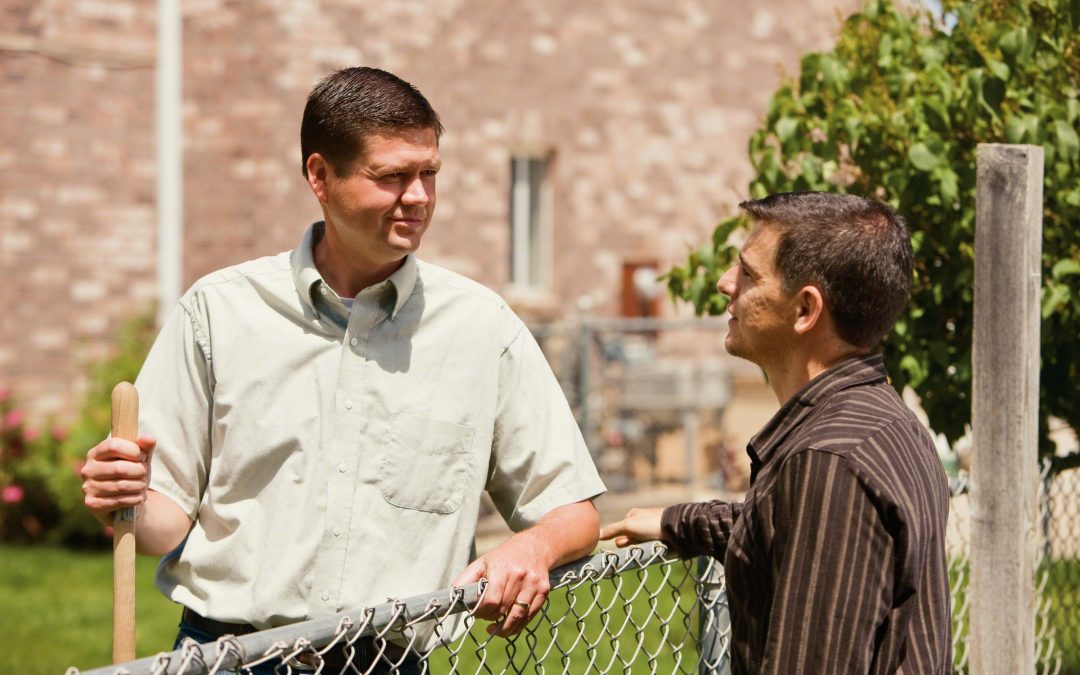Our next Go Local task is to begin to get to know our neighbours by engaging them in conversations! Read below for more information.
Goal: To practice listening well and to meet/get to know your neighbours.
- Have a conversation with a neighbour.
- Ask good questions and be an attentive listener.
- Reflect and debrief every conversation:
o Do your personal A(ction) R(eflection) T(heology) work and share/discuss it at our Leadership Team meetings. - What are you discerning?
o Share your findings with the Leadership Team
Why is listening so important?
“The most basic and powerful way to connect to another person is to listen. Just listen. Perhaps the most important thing we ever give each other is our attention. A loving silence often has far more power to heal and to connect than the most well-intentioned words.” (Rachel Naomi Remen)
“Just as love to God begins with listening to His Word, so the beginning of love for the brethren is learning to listen to them …Many people are looking for an ear that will listen. They do not find it among Christians, because these Christians are talking where they should be listening. But he who can no longer listen to his brother will soon be no longer listening to God either; he will be doing nothing but prattle in the presence of God too.” (Bonhoeffer)
“…As you wait for the people you are communicating with to finish, as you simply listen more intently to what is being said, you’ll notice that the pressure you feel is off” (Carlson). When someone feels heard and understood, and when you are actually listening to what they are saying, when the pressure to respond is off – you are able to build relationship with that person!
“My dear brothers and sisters, take note of this: Everyone should be quick to listen, slow to speak and slow to become angry.” (James 1:19)
- Listening is as an act of encouragement. “Therefore encourage one another and build each other up…” (1 Thess. 5:11).
- Listen is an act of kindness.
- Listening can bring healing; “People start to heal the moment they feel heard.” (Cheryl Robinson). http://ccsonline.ca/2017/10/listening-brings-healing/.
- Becoming a Better Listener helps in EVERY AREA of life: “Listening well will help you become a better friend, sibling, employee, spouse, parent, neighbour and most importantly, it will help you as [deacons] truly live as examples of Jesus Christ” [taken from the Charge to Deacons, 2016]. “An understanding mind gets much learning, and the ear of the wise listens for much learning.” Proverbs 18:15 (NLV)
What does being a Good Listener require?
- Good Listening requires Patience and Concentration.
- Good Listening requires Interest and Empathy.
- Good listening requires listening to Understand, not to Reply.
- Good Listening requires our Whole selves….
- Your brain, for thinking and processing what you are hearing;
- Your eyes, to keep good eye contact and stay engaged;
- Your ears, of course!
- Your mouth, to ask good questions or share a response, idea or insight;
- Your hands being kept still, so you aren’t fidgeting and making the other person nervous;
- Your entire posture matters (whether sitting or standing).
- Good Listening requires Listening to What People Don’t Say as Much as to What They Do Say:
- It’s important that as we use OUR whole body to listen, we also take note of what the other person is communicating through their body language.
- Does their body/face match what they are saying? What might their posture be saying that their words are not?
Practice being brave and engaging in a casual conversation with a neighbour. Then take some time to reflect on your conversation and share your reflections with the Leadership Team!
Need some inspiration? Let our neighbour down the street show you how it’s done:

